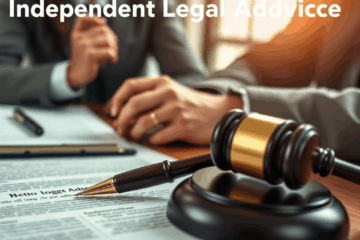If you’re involved in a legal matter in British Columbia, Canada, you’ve likely heard the term “Judicial Case Conference” (JCC). Whether you’re the plaintiff, defendant, or legal professional, it’s essential to understand what a JCC is, how it differs from a court trial, and how to prepare for it. This blog post will provide a comprehensive overview of the Judicial Case Conference and offer some useful insights into how to navigate the process.
Table of contents
What is a Judicial Case Conference (JCC)?

A Judicial Case Conference (JCC) is a meeting between the parties involved in a civil lawsuit, their legal representatives, and a judge or a master of the court. This conference typically occurs early in the litigation process, often before the trial date is set. It’s a non-adversarial process aimed at discussing various issues related to the case, resolving disputes, and moving the case forward in an efficient and organized manner.
The judge or master doesn’t make decisions on the substantive issues of the case during the JCC. Rather, the primary goal is to encourage settlement, narrow down the issues that need to be litigated, and provide an opportunity for both sides to assess their positions.
How is a Judicial Case Conference Different from a Court Trial?
The JCC is a completely different process from a trial. Here’s a breakdown of the key differences:
- Purpose:
- The JCC is primarily focused on settlement and case management. It’s about resolving issues efficiently and potentially avoiding the need for a lengthy trial.
- A court trial, on the other hand, is where the substantive issues of the case are argued before a judge, who will ultimately issue a judgment.
- Formal vs. Informal:
- The JCC is informal. The judge will act more as a facilitator and is not there to make a ruling on the case’s merits. There’s less emphasis on legal formalities and more focus on finding practical solutions.
- In contrast, a trial is formal, with strict procedures and rules of evidence.
- Outcome:
- At a JCC, the judge may make recommendations, but they are not binding. The goal is to narrow down the issues for trial or help the parties reach a settlement.
- A trial results in a binding decision by the judge, which can only be appealed in certain circumstances.
- Cost and Time:
- A JCC is generally quicker and more cost-effective than a trial. It’s usually an hour or two long and doesn’t involve presenting a lot of evidence.
- A trial is often time-consuming and costly, with both parties presenting evidence, witnesses, and legal arguments in front of a judge.
What Happens During a Judicial Case Conference?
During the JCC, the judge will discuss various elements of the case with the parties. These might include:
- Case Management: The judge may suggest timelines for exchanging documents, setting deadlines for motions, and planning further steps toward a trial if necessary.
- Settlement Discussions: The judge may encourage the parties to settle the case outside of court or recommend alternative dispute resolution methods like mediation.
- Narrowing Issues: The judge may help clarify the issues that need to be resolved, potentially reducing the scope of the case for a trial.
- Identifying Obstacles: The judge will often try to identify any procedural or legal obstacles that could hinder progress, such as issues with evidence, jurisdiction, or procedural fairness.
How Can You Prepare for a Judicial Case Conference?
Proper preparation is crucial to making the most out of a Judicial Case Conference. Here are some steps to ensure you’re well-prepared:
- Review the Case:
- Before attending the JCC, thoroughly review your case, including all documents, evidence, and pleadings. Be ready to discuss the core issues and any potential areas for settlement.
- Understand the Objectives:
- Know what you want to achieve from the JCC. Are you hoping for a settlement, or are you preparing for trial? Have a clear sense of your goals and be prepared to articulate them.
- Prepare a Case Management Plan:
- It’s often helpful to prepare a case management plan, which includes a timeline for resolving issues, evidence exchange, and potential steps leading up to trial. This can show the judge you are organized and committed to resolving the matter efficiently.
- Be Open to Settlement:
- While the judge won’t directly push you to settle, JCCs are designed to encourage settlement discussions. Approach the meeting with an open mind and be ready to explore settlement options.
- Bring Relevant Documents:
- Ensure you have all relevant documents and evidence on hand, including affidavits, letters, and other materials that may be relevant to the discussion.
- Have Legal Counsel Present:
- If possible, ensure you have legal representation present at the JCC. Your lawyer can help you navigate the discussion and offer strategic advice based on their knowledge of the case.
What Happens After the Judicial Case Conference?
Following the JCC, the judge may issue a Case Management Order which outlines the next steps in the litigation process. This could include further deadlines, motions, or suggestions for settlement.
If the case isn’t resolved at the JCC and proceeds to trial, the judge will have narrowed down the key issues that need to be decided, which will help expedite the trial process.
Conclusion
The Judicial Case Conference is an essential step in the litigation process in British Columbia. It offers a less formal, more cost-effective way to address and resolve issues before the case heads to trial. Whether you’re hoping for a settlement or just trying to streamline the case, understanding the JCC’s purpose and preparing effectively can make a significant difference in the outcome of your case.
By approaching the JCC with preparation, clarity, and openness, you can use this meeting to your advantage and potentially avoid the time and expense of a trial. Always consult with your lawyer to ensure you are well-prepared for this critical step in the legal process.
Important: Please note that the information here is not meant to be legal advice. Do not solely rely on the information given here; it is important that you consult with a lawyer regarding any legal advice. Pax Law Corp. is not responsible for any reliance on the contents of this blog post. Any faces posted on this blog post is totally AI generated and they are not intended to represent any person in the real world. Any similarities are completely coincidental.
Discover more from Pax Law Corporation
Subscribe to get the latest posts sent to your email.



0 Comments